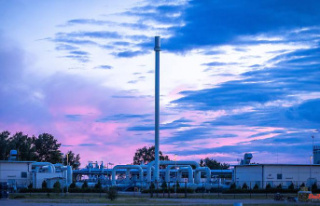Rising raw material prices and imminent supply bottlenecks give rise to fears of a long, cold winter. Many consumers therefore now want to get away from gas and oil as quickly as possible. Frederic Leers from the heating association BDH explains to Capital.de why implementation is lacking and why heat pumps are not the only alternative.
Mr. Leers, what condition is your industry in at the moment?
For over a year we have been experiencing a significant market revival that we have not seen in 20 years. So far we have sold around 600,000 to 700,000 new systems per year in Germany, last year it was over 900,000. This has primarily to do with the improved subsidy framework, but also with the increased awareness of the savings potential associated with modern heating if it corresponds to the state of the art. In any case, the subject of saving energy and heating systems has become the focus of public attention, which is also necessary: In Germany, we have outdated systems: Of the 21 million heating systems, eleven million devices are technically outdated, i.e. around half. The existing systems must be modernized as quickly as possible - because the heat transition will be decided in the existing system. This is now even more important.
Many owners notice this and want to renew quickly because of the gas crisis. Is that currently possible?
The heating industry still has reserves in terms of production capacity, but there are currently a number of challenges: above all, the lack of hands in the trade and the partially interrupted supply chains. There are also political challenges: politicians are planning that from 2024 every new heating system should be operated with 65 percent renewable energy. The debate about this is creating additional uncertainty for consumers and the entire industry.
What does that mean for the industry in general?
We are currently experiencing a focus in politics on the heat pump. It will play a central role in the implementation of the heat transition. However, it is also clear that the heat transition will only succeed if we use all technical options based on a broad renewable and CO2-free energy mix.
But the heat pump is supposed to become a key technology in the domestic energy transition.
That is the declared goal of the Federal Government, but security of supply and grid expansion on the electricity side must also be taken into account - the entire energy system. Hybrid systems can also be a solution, i.e. a combination of different technologies and energy sources. These are, for example, condensing boilers in combination with a heat pump or solar thermal energy. Or the use of home ventilation systems with heat recovery. Or the use of green energy sources such as biomethane and hydrogen in existing heating systems. All of this contributes to CO2 reduction.
How realistic is the goal of having more than six million heat pumps installed in this country by 2030?
The BDH manufacturers support this goal of the federal government. But the Central Association for Sanitary, Heating and Air Conditioning has also calculated that we will need around 60,000 additional fitters in the short term to install these six million heat pumps in Germany.
Nadine Oberhuber spoke to Frederic Leers
The interview first appeared on Capital.de












